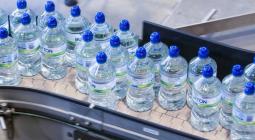Study: Glass Bottles Harm the Environment More Than Plastic Bottles.

Glass bottles could have an even bigger impact on the environment than plastic ones, a new study has found.
Researchers at the University of Southampton in England set out to determine which common beverage containers cause the most and least harm to the environment. They found that glass is actually more detrimental than plastic because it is mined from rare materials and requires more fossil fuels to produce and ship.
"It might come as a surprise, but glass bottles actually ranked last in our analysis," study coauthors Alice Brock and Ian Williams wrote in The Conversation. "You might instinctively reach for a glass bottle to avoid buying a plastic alternative, but glass takes more resources and energy to produce."
In a study published in Detritus, Brock and Williams investigated the most and least impactful container options for three beverage types: milk, fruit juice and pressurized fizzy drinks. In order to determine each container's impact, Brock and Williams conducted life cycle assessments and compared the containers based on several indicators of environmental harm, including their contribution to global warming, depletion of resources and impact on human health and terrestrial and marine environments.
For each type of beverage, Brock and Williams were then able to rank the containers from most to least harmful.
- Fizzy Drinks: Glass bottles were the most harmful and 100 percent recycled aluminum cans were the least. In between, from most to least impactful, came recycled glass bottles, plastic polyethylene terephthalate (PET) bottles and non-recycled aluminum cans.
- Fruit Juice: Glass bottles were again the most harmful and Tetra Paks were the least. In between came recycled glass bottles and PET bottles.
- Milk: Glass was the most impactful and cartons were the least. In between were recycled glass bottles and high-density polythene (HDPE) plastic bottles.
While each beverage category had a least impactful option, the researchers noted that even the minimally impactful choices still caused harm. Non-recycled aluminum cans, for example, ranked high for having toxic impacts on marine environments despite being the second-least impactful fizzy drink container type overall.
"All beverage packaging that we assessed showed some form of environmental impacts and both the milk carton and Tetra Pak, despite being less impactful than the plastic bottles, still contain plastic elements," Brock said in a University of Southampton press release emailed to EcoWatch. "Based on the evidence, society needs to move away from single-use beverage packaging in order to reduce environmental harm and embrace the regular everyday use of reusable containers as standard practice."
That said, there is a difference between the most and least impactful options. Glass bottles contributed about 95 percent more to the climate crisis than aluminum cans, the study authors noted in The Conversation. Still, Brock and Williams said the message of their research went beyond individual consumer choice.
"We hope our study will help inform public and commercial debate over the suitability of some types of packaging that we all use in our daily lives and lead to swift and decisive changes in the drinks industry to find more environmentally friendly alternatives as a matter of some urgency," Williams said in the press release.
18 November 2020
EcoWatch




